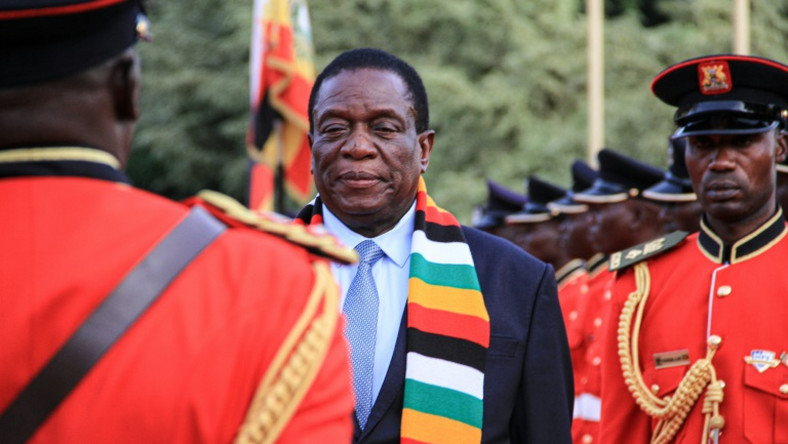
- How Nigeria and Zimbabwe are taming democratic values in Africa.
- Across Africa, the culture of protests is spreading wide and far as obtainable in Malawi, Guinea, Algeria, South Africa, and Ethiopia.
- Precious Ohaegbulam in this opinion piece writes on the intolerant attitude by African governments across the continent.
The event was largely attended by citizens who had already developed a growing affiliation for the opposition after having had their hopes shattered by the ZANU-PF and President Emmerson Mnangagwa.
Over the past few months, the government of Zimbabwe has become more intolerant of dissidents. The growing public outrage is linked to the inability of the government to revive the country’s comatose economy. Also, President Mnangagwa now seems to have eroded the stock of goodwill he enjoyed after succeeding Robert Mugabe.
In a similar fashion, though, the government of Nigeria with its history of clamping down on protests and critics also recently deployed State Security Service officers to attack citizens and journalists demanding the release of political prisoners. It is not out of place to say that this intolerant attitude by African governments is common across the continent.
Across Africa, the culture of protests is spreading wide and far as obtainable in Malawi, Guinea, Algeria, South Africa, Ethiopia, and elsewhere. All is not well on the continent. However, protests are good for democracy; it means Africans are engaged and watchful over the actions of their leaders. Also, criticism of the government has historically been linked to the institutionalization of the many liberties enjoyed by people all across the world.
In the case of Zimbabwe, the dissent is understandable and justified. Foreign direct investment has slowed to a trickle. There is a prevalence of infrastructural decay and the continued exit of skilled citizens presents the picture of a nation in despair.
The country’s inflation rate is pegged by the International Monetary Fund at 161.8 percent, only surpassed by that of Venezuela. Under the weight of its crumbling economy, the budget is said to be the equivalent of almost three national budgets with a significant chunk of it dependent on foreign aid. Other sectors in need of critical attention include its failing pension system, agriculture, mining, and health sectors.
President Mnangagwa has pleaded for more time. How much time he needs is yet another matter because he has said that things have to get worse before they get better. A tighter fiscal policy that features lower income taxes and a reduction in government spending will also make positive impacts. Privatization of dilapidated state enterprises, deregulation in key sectors, and pruning recurrent government expenditure are policies worth equal interest.
In Nigeria, however, the dissent is largely fueled by the government’s lip-service to the eradication of corruption, its shameful recurring defiance of court orders and the glaring subversion of the rule of law. In addition, in the wake of its ill-timed border closure and inability to stem the tide of insecurity around the country, the government of President Muhammadu Buhari has also been desperate.
By its refusal to obey the order of a federal high court for the release of some political prisoners, even after their sureties have met the set bail conditions, the State Security Service, as an institution of government, has exposed the country to international ridicule and it would be wise for the president to intervene both in a bid to stop the needless embarrassment and protect the lives of protesters unjustly attacked.
The protesters in Nigeria are clear on what is necessary for the government to do and it presents a myriad of holistic solutions that will attend to the ills of various sectors including, improving the correctional system for corruption and other criminals who pose security threats, improving the management of resources, creating more jobs and policies towards reducing mass poverty.
Dissidents are only trying to keep Nigeria and Zimbabwe alive. It would be counter-productive and undemocratic for any government to always resort to calling state-backed agencies to arms against protesters before engagement and dialogue. Both countries need to set good precedents.
……….
Precious Ohaegbulam is a Writing Fellow at African Liberty and a freelance writer and communications specialist. He can be reached via @prsh9 on Twitter.
PS: The views and opinions expressed in this article are those of the author and do not reflect the official policy or position of the Business Insider SSA by Pulse and its staff.

